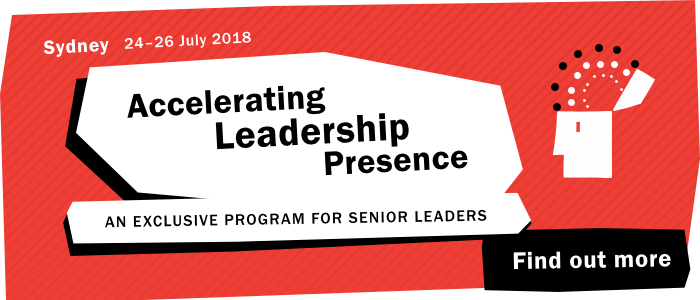28th May 2018
Effective Leadership Begins With Self Awareness
Becoming a better leader, or a better teammate, starts with knowing yourself. Self awareness is knowing what helps you perform at your very best – as well as recognising situations which can bring out the worst in you. That’s why there is a strong relationship between self awareness and leadership.
Self awareness is also knowing the impact that your behaviour has on other people and trying to make adjustments that will lead you to better outcomes. It’s almost impossible to be a good leader without a healthy dose of self awareness.
For example, if you know you have a bias for action and making quick decisions, you will have to work harder to avoid shutting down conversations before all the important issues are surfaced.
Or, if you’re a team leader who tends to avoid conflict, you’ll want to resist the temptation to shut down a good debate between two team members. Another example is when you have a high need for control, which often causes people to see you as a micromanager. In this situation, you’re showing self awareness if you back off and let go, which will tell others that you have confidence in their ability.
When we first created the Accelerating Leadership Presence (ALP) program in 2009, we designed Self Awareness as the first learning module. Why? We believed that before you start any self development undertaking, particularly in how you relate to others, you’ve got to start with some self examination.
A person with high self awareness gets good at asking the question, “If I don’t like how things are unfolding in a situation, is there something that I’m doing that may be part of the problem?” In contrast, people with low self awareness will often blame others first, rather than going inward to ask whether there’s something they need to do differently.
A great self awareness exercise for leadership is to ask the following questions:
- Do you have natural strengths that are not being tapped, or that you should maybe tap into more? Some people are in jobs that don’t bring out the best in who they are, or in what they have to contribute. Are your talents largely on display or are they hidden?
- Do you get bored easily and, if so, does this mean you don’t have enough challenge in your role? Many people don’t realise that being bored can be just as stressful as being overworked.
- Is the flow of your day structured around your body’s biorhythm? A lot of people struggle to pay attention in the afternoon, so why not schedule important ‘thinking’ time earlier in the day?
- Do you require a lot of attention and praise, or are you self sufficient? If you’ve developed a reputation for being high maintenance, others may start to avoid you.
- What are your personal triggers for high stress? For some people, it’s fatigue. For others, it’s dealing with people who shun accountability. Or perhaps you have a low tolerance for whining. What are those things that cause you to come unglued? People with high self awareness are careful to avoid triggers that bring out their worst side.
Finally, the main way to close the gap between how others see you, and how you view yourself, is to ask for feedback from those people who work with you. You can do this informally, or there are more structured ways to get feedback, such as surveys that people can complete. What you’re seeking to do is to find out what your coworkers consider to be your strengths, as well as those things that they recommend you do differently.
Remember, self awareness only matters in relation to other people around you. If you want to be a better leader or team member, go inward and take an inventory on those things that may require some fine tuning. If the end result is a better you, everybody wins.
And if you really want to go in deep and use Self Awareness as a platform to transform how you interact with and influence others, then maybe you should sign up for our Accelerating Leadership Presence (ALP) programs on July 24 to 26, in Sydney. Enrolments are open now.
Categories: Developing Leaders





